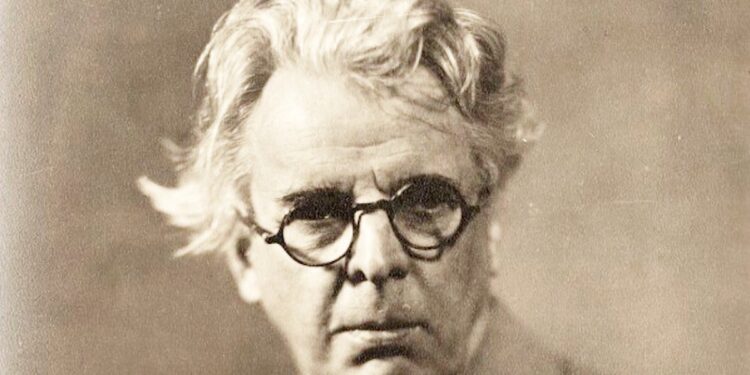Few literary figures embody the soul of a nation quite like William Butler Yeats. A poet, dramatist and political voice, Yeats carved his name into the cultural bedrock of Ireland, blending myth, mysticism and modernism into a body of work that remains unmatched in its scope and influence. Born in 1865 in Dublin, Yeats emerged not just as a writer of lyrical genius but as a central figure in Ireland’s struggle for cultural and political identity.
Raised between Sligo, London and Dublin, Yeats was steeped in folklore, fairy tales and the supernatural—an influence that would become the lifeblood of his early poetry. His work with the Irish Literary Revival helped reclaim the dignity of Irish heritage at a time when colonial pressures threatened to erase it. Alongside figures such as Lady Gregory and John Millington Synge, Yeats co-founded the Abbey Theatre in 1904, providing a platform for distinctly Irish drama and giving voice to rural and revolutionary narratives.
His early poems, such as The Lake Isle of Innisfree and The Stolen Child, were filled with longing for an idealised Irish past, wrapped in soft musicality and symbolic imagery. But Yeats did not remain a dreamer. As Ireland’s fight for independence intensified, so too did the urgency and complexity of his poetry. The Easter Rising of 1916, which led to the execution of many Irish nationalists, including his friend Major John MacBride, prompted Yeats’s powerful and conflicted poem Easter, 1916, capturing the ambivalence many felt about the violent turn of events: “All changed, changed utterly: A terrible beauty is born.”
Later, Yeats’s poetry grew darker and more introspective, shaped by personal loss, political disappointment and a fascination with esoteric philosophy. His involvement with the Hermetic Order of the Golden Dawn and his lifelong interest in the occult informed his collection A Vision, a challenging work of symbolic history and cosmology. At the same time, his mature poems—such as The Second Coming and Sailing to Byzantium—touched on the collapse of civilisation and the search for spiritual transcendence, offering a haunting reflection of the turbulence of the 20th century.
Beyond literature, Yeats served as a senator in the Irish Free State and was awarded the Nobel Prize in Literature in 1923. His political vision, however, often clashed with the realities of the emerging state. He feared the rise of narrow nationalism and Catholic orthodoxy, believing in a broader, more inclusive vision of Irish identity rooted in cultural richness and philosophical depth.
Yeats died in 1939 in France, but his remains were reinterred in Drumcliff, County Sligo, beneath the shadow of Ben Bulben, a landscape he had immortalised in verse. On his tombstone are the words from his final poem: “Cast a cold eye / On life, on death. / Horseman, pass by!”
Today, Yeats remains not just a literary titan but a guide through the complexities of identity, art and history. His work endures because it captures the timeless tensions of beauty and violence, myth and modernity, the personal and the political. In remembering Yeats, we remember a voice that dared to dream Ireland into being.
newshub finance



Recent Comments